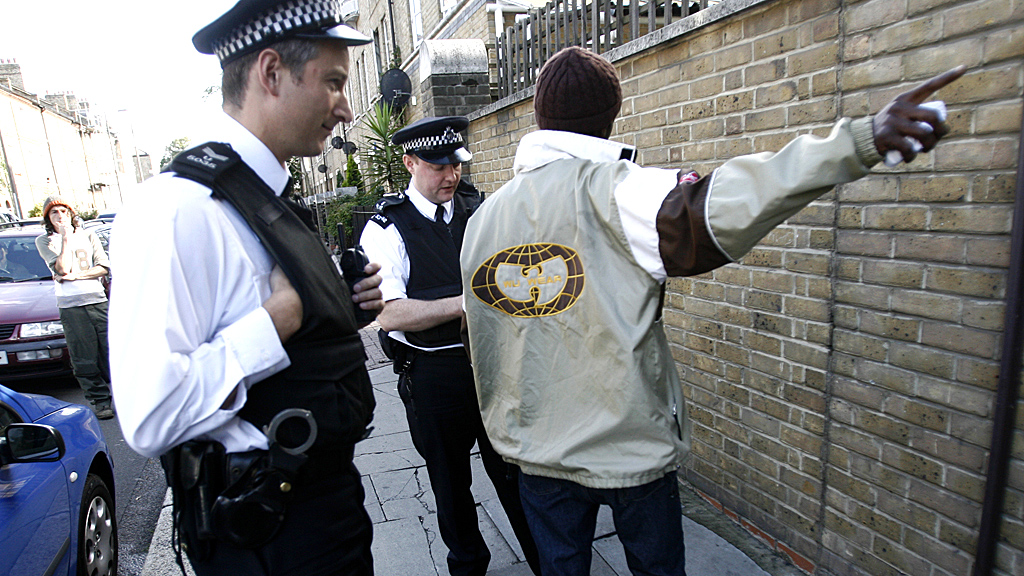Police stop and search arrest numbers ‘too low’ says May
The home secretary launches a public consultation into police stop and search powers, after official figures show the number of searches leading to arrests is “far too low for comfort”.

Last year, 1.2 million people in England and Wales were stopped and searched by police, of whom 9 per cent were arrested.
Home Secretary Theresa May said the low arrest ratio led her to question if the powers were “always used appropriately” by police.
She said stop and search is a “vital power” in the fight against crime, but the government was concerned about police use of the power for two reasons.
Under section 60, black or Asians are 25 times more likely to be stopped and searched. Labour MP Keith Vaz
“First, it must be applied fairly and in a way that builds community confidence in the police, rather than undermining it.
“And second, given the scale of recording requirements placed on the police, when stop and search is misapplied, it is a waste of police time,” she said.
She pointed to statistics that showed blacks and Asians are seven times more likely to be stopped and searched than whites.
‘Reasonable grounds’
The home secretary said the law is clear that police should only use stop and search powers when there are “reasonable grounds to suspect” people are carrying stolen goods, drugs or weapons. These searches are called “section one” searches.
However, section 60 searches – in response to or anticipation of serious disorder – do not require officers to have reasonable grounds.
It is the latter that are more contentious. Labour MP Keith Vaz reminded Mrs May that: “Under section 60, black or Asians are 25 times more likely to be stopped and searched.”
He urged Mrs May to look at diversity within the police, saying forces have to be representative of society if the public are to have confidence in them.
Earlier this month, the Equality and Human Rights Commission (EHRC) reported that after working with five police forces for 18 months, including the Metropolitan Police, the forces had cut back on the number of stop and searches without compromising crime reduction.
The EHRC’s work followed their 2010 report which found that black people were disproportionately stopped by police. Following the 18-month programme, the five forces had cut their stop and searches by 50 per cent, with four out of the five registering a drop in the number of black and Asian people disproportionately stopped.
Mrs May said on Tuesday that the EHRC’s report had “reinforced the view that we can get stop and search right”.
She said that latest figures from the Met showed “good progress”. The Met has set itself an arrest rate target of 20 per cent, with latest figures showing that 18.3 per cent of stop and search incidents have resulted in arrests.
In Hackney alone, 26.3 per cent of stop and searches in the last year have led to arrests.
‘Scattergun approach’
Mark Hammond, chief executive of EHRC, said: “Stop and search is a necessary and useful power. If it is used proportionally and intelligently the police can protect the public, reduce crime and disorder and improve relations with black and ethnic minority groups.
“There is no evidence to suggest that disproportionately targeting black and Asian people reduces crime.”
Rather than using a “scattergun” approach, the EHRC supports an “intelligence-led approach”. On average, it is estimated that each stop and search takes up to 16 minutes of police time. “That’s 312,000 hours per year or 145 full time police officers,” the home secretary said.
Labour MP for Hackney North and Stoke Newington, Diane Abbott, said that it was not being stopped that people objected to, but it was “the way the police talk to them”.
She said her constituents had told her that it was police stop and search tactics that had triggered the riots of 2011. She added that there was a “lot to be done in training”.
Mrs May said she has previously asked the Association of Chief Police officers to look at best practice and has also asked the HM Inspectorate of Constabulary (HMIC) to report across all police forces. She said the HMIC report, due to be published next week, is the “best evidence base to use”.
She said that by the end of the year, the government will report back on both the HMIC report and the public consultation – which will last six weeks.
Mrs May said that it was “time to get stop and search right”, adding that: “as long as I’m Home Secretary, police will maintain their right to stop and search”.
-
Latest news
-
‘I violated my moral compass working for Trump,’ former lawyer testifies3m

-
Working class creatives in film and TV at lowest level in decade5m

-
Israeli police investigating attack on Gaza aid convoy4m

-
Biden announces major tariff increase on Chinese-imported green tech3m

-
‘If NHS can afford it, people with obesity should have Semaglutide,’ says weight loss expert5m

-




